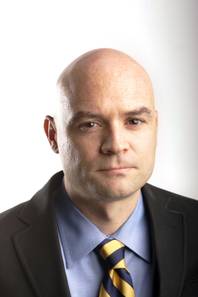Thursday, March 21, 2013 | 2 a.m.
View more of the Sun's opinion section

J. Patrick Coolican
Sun Archives
- Construction defects law under the microscope (12-7-2011)
- Assembly advances bill on home construction defects (6-5-2011)
- Construction defect bill resurfaces in budget battle (6-1-2011)
- Construction defect legislation remains contentious (4-29-2009)
- Trapped by lawsuits, subcontractors seek relief (2-22-2009)
- Assembly bill scores one for lawyers in construction defect tug of war (4-22-2009)
- On home defect legislation, lobbyists went to the wire (6-21-2009)
- More columns by J. Patrick Coolican
As my colleague Anjeanette Damon reports this week, the Groundhog Day legislative battle over construction defect litigation has broken into the open, with state Sen. Michael Roberson using some legislative legerdemain to move his bill from a hostile committee to a friendly one.
Your perfectly understandable reaction is probably, huh? Who cares?
More than people realize, the Legislature is often consumed with special interest issues, like fights between hospitals and insurance companies or one class of gaming company against another. This isn’t to say the issues aren’t important, at least to the players involved, but if you think your elected representatives are just up here having lofty discussions about education reform or transportation priorities, you’re kidding yourself.
As happens every two years, developers, contractors and subcontractors want to make it more difficult for homeowners to claim construction defects, known as “Chapter 40 notices” for their place in Nevada’s statutes. They say the litigation is often frivolous and expensive — adding to the cost of new homes and apartments — and filed just so plaintiff attorneys can collect hefty attorney fees. Attorneys for homeowners say they just want to protect Nevadans from shoddy building.
It’s a nasty battle every session because it’s seen as a zero-sum game — if one side wins, the other loses. And there’s boatloads of money at stake. It’s hard to see your way through to a compromise.
And this session will be as tough as ever. How do we know? For one thing, building is coming back in Southern Nevada, and the developers would no doubt like to clear away the plaintiff attorneys as they embark on plans to blast into the desert and throw up their mediocre product.
The plaintiff attorneys, meanwhile, are on the defensive — they’ve suffered a tough bout of negative publicity from the scandal in which fraudsters fixed up homeowner association board elections so they could steer construction defect lawsuits to favored law firms for kickbacks.
Here’s another thing about these seemingly arcane issues that can so dominate a legislative session — they fund campaigns. Both sides have dumped big money into into the campaign accounts of the key players.
Roberson, the Republican Senate minority leader, has raked in through his personal campaign and political action committees $100,000 or more from developers, contractors and their lobbyists, including big donations from Nevada Realtors, Nevada Subcontractors, Associated General Contractors, Pardee Homes, Leading Builders of America and Marnell Companies, as well as the chambers of commerce of Reno and Las Vegas, both of which support Roberson’s construction defect effort.
It’s easy to see, as Damon has reported, why Roberson wanted to move his legislation out of the Senate Judiciary Committee, whose chairman is state Sen. Tick Segerblom, an attorney who is a friend of the trial bar. In recent years he’s received $40,000 — and that’s just the big-dollar donations I plucked out — from plaintiff attorneys such as $5,000 from Fenton, Grant, Mayfield, Kaneda & Litt; $6,000 from Kemp, Jones & Coulthard; $5,300 from Lynch, Hopper, Salzano & Smith; and $3,500 from Robert Maddox. The political action committee of the trial attorney lobby, called the Citizens for JusticeTrust, has given more than $10,000. (Segerblom has also received money from law and lobby firms and developers on the other side of the fight. Always hedge your bets.)
This fight is so brutal, so tribal, that I don’t mean to suggest that campaign money will determine the ultimate outcome.
But it’s always good to keep in mind that everyone here knows who his friends are.
How important is this issue to the construction industry? Roberson has said it’s one of his top priorities and will be part of end-game negotiations that will also involve tax reform and school budgets.
In other words, if we take him at his word, somehow the future of the state will — at least in part — hinge on the outcome of this parochial fight between developers and trial lawyers.
Great, isn’t it?

Join the Discussion:
Check this out for a full explanation of our conversion to the LiveFyre commenting system and instructions on how to sign up for an account.
Full comments policy